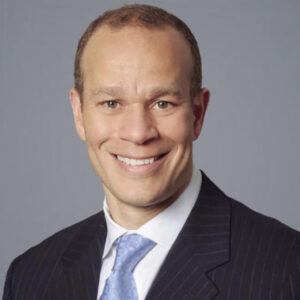‘You are all climate lawyers now.’ So declared John Kerry, the US special presidential envoy for climate, at the General Assembly of the 2021 American Bar Association hybrid annual meeting in Chicago. Fast forward to 2023, and the veracity of this statement far exceeds even Kerry’s predictions.
‘You are all ESG lawyers now rings just as true’, quips Slaughter and May corporate partner and head of sustainability Jeff Twentyman. ‘All lawyers have to be conversant in it, and it should be part of all lawyers’ day-to-day job.’
Today’s focus on ESG means that the impact every company makes on the environment and society, as well as its internal governance policies, is under scrutiny. Accountability can no longer be an afterthought – it has permeated the very fabric of doing business. ‘It’s not a discrete subject anymore; it affects everything’, states Twentyman.
Inevitably, this scrutiny is also being placed on lawyers both in-house and in private practice.
‘An ESG lens should apply to all legal work and no ESG issue can be viewed in isolation’, Adrian Walker, global head of ESG at Hogan Lovells, elaborates.
This means that companies must realise that the S and the G are also important, even if many of the headlines to date have focused on environmental issues.
Nor should corporates try to squeeze ESG into an organisational silo. ‘The view that ESG is a standalone speciality is no longer compatible with successful operations’, points out Timothy Wilkins, who leads the Freshfields Bruckhaus Deringer global sustainability team.
In-house counsel have a crucial role to play in all of this, helping their companies avoid risk and acting as intermediaries between various internal stakeholders. They must also be educators of the business.
Risky business
The steady evolution of new ESG regulation, combined with an increase in enforcement action, means in-house lawyers need to play an ever-increasing role in protecting their companies from the threat of litigation claims, or regulatory violations connected with ESG, as greenwashing claims continue to mount.
Matthew Townsend, one of the founders of Allen & Overy’s global ESG group, points to ‘the rise in impact litigation, where companies are the subject of claims simply designed to bring attention to an issue rather than seek a monetary award’.
Freshfields’ Wilkins adds another layer, suggesting that businesses need to learn ‘how to balance short-term economic issues with longer term compliance ones’. He refers to wider geopolitical events such as soaring energy prices, rampant inflation and a looming recession, which may require business decisions that aren’t necessarily in alignment with ESG.
Clifford Chance ESG board member Rae Lindsay, who also co-heads the firm’s business and human rights practice, expands on this, noting that one of the challenges for businesses is working out ‘how to balance the opportunity versus risk side of proposed activities, as well as how to manage double-edged propositions that achieve climate change objectives but may impact human rights’.
Jeroen Ouwehand, who leads Clifford Chance’s global ESG board, agrees: ‘There are often contrary pressures on ESG strategies and commitments from differing political environments, meaning in-house lawyers have to navigate these opposing pressures to avoid being caught between a rock and a hard place.’
This can be a particularly big issue in global companies, given ESG perspectives and drivers often vary significantly from one jurisdictions to the next.
It’s no wonder then that trying to deal with ESG can feel like walking a tightrope, making a risk management plan critical.

Timothy Wilkins, Freshfields Bruckhaus Deringer
Not only are slip-ups highly likely but, as Wilkins points out: ‘Social media has assured that missteps in the sustainability space will spread within hours to investors, employees and customers.’ The company’s reputation is at stake.
While lawyers are often accused of diluting corporate ambition, private practice partners recommend that the in-house legal team is committed to ensuring that the business does not overstate or oversell ESG credentials.
In the event that something does go wrong, and a company’s ESG credentials are found to be publicly wanting, knowing what to do next is critical.
Lindsay advises: ‘Be wary of making immediate short-term public statements that tie the organisation into a position before it has been possible to take stock and ensure that the position can be backed up.’
Twentyman agrees, noting that ‘success will be judged not by something that’s gone wrong but by how you react to what’s gone wrong. Long-term thinking will help do the right thing when mistakes are made.’
The myriad roles of an ESG lawyer
Where ESG is concerned, risk and reputation are inextricably linked, so it’s clear that in-house lawyers must provide far more than just bog standard legal advice.
Says Twentyman: ‘The in-house lawyer has a role in influencing the right ethical position of businesses. If you simply ask if it’s legal or illegal, there’s a good chance you’ll get it wrong. Many things are legal but plainly wrong.’
ESG trends for 2023
Just transition – A concept which emerged from the 2015 Paris Agreement and was developed by the trade union movement, it seeks to unite social and climate justice. It encompasses a range of social interventions needed to secure workers’ rights and livelihoods when economies shift from high-carbon activities to sustainable production and a green economy. Not least due to the current energy crisis, 2023 is seen as a critical year for accelerating a just transition.
Nature – Biodiversity is quickly rising up the ESG investing agenda and is set to influence the future of ESG programmes
and reporting. While the Task Force on Climate-Related Financial Disclosures (TCFD) created in 2015 has developed a framework to help companies disclose climate-related risks and opportunities, since 2021 the Taskforce on Nature-related Financial Disclosures (TNFD) has also been developing a risk management and disclosure framework for organisations to report and act on evolving nature-related risks.
Human rights – Human rights issues are sensitive for many businesses and are getting increased attention. The use of innovative human rights arguments in climate cases is set to continue. Human rights are given increased focus in the context of supply chains: On the legislative front, the European Commission’s proposed Corporate Sustainability Due Diligence Directive addresses not only negative environmental but also human rights impacts in global value chains.
ESG is also about being responsible and doing the right thing. Walker stresses: ‘ESG is about values. Increasingly, people will not work for or do business with your company if your values are not aligned.’ And compliance is only one element of this. ‘If you think about ESG purely in compliance terms you miss the real enterprise risk,’ explains Walker.
It’s a view that Paula Alessandro, a general counsel within Standard Chartered Ventures, shares. However, she acknowledges that lack of certainty around ESG can make it hard to fit into a corporate strategy, even for those businesses with a clear focus on sustainability. ‘Not everything that is valuable is measurable and everybody likes metrics – especially in finance. For example, it’s very hard to measure social impact in quantitative measures, but qualitative measures are just as important here.’

Aleksandra Schellenberg, UBS
As boards are increasingly being held accountable for ESG failings, in-house lawyers have an opportunity to take the lead. At the legal level, their role is to use legal tools and frameworks to give effect to what the business is trying to achieve and to act as risk managers. They also need to educate the board and the wider business about how it can effect change consistent with its strategy.
‘ESG is a competitive sport and it is about performance; in-house lawyers should be looking at their entire business and legal infrastructure to optimise positive impact and drive long-term, resilient returns,’ says Walker.
What does this mean in practice? Firstly, there needs to be a strategic understanding and policy commitment from the top. Secondly, implementation needs to happen effectively throughout the business. The legal team, agree Ouwehand and Lindsay, ‘can play an important role in bringing the various internal stakeholders on ESG together as it is such a broad topic’.
‘The in-house counsel needs to fulfil the important role of coordinator and ringmaster,’ says Twentyman.
The in-house view: Aleksandra Schellenberg, global head of legal, sustainable finance, UBS
ESG has been moving up the corporate agenda in recent years. What does this mean for the in-house legal team?
Sustainability has clearly became a boardroom topic, and regardless of whether your company places ESG at the centre of everything it does or not, sustainability has moved from being seen as ‘going the extra mile’ to being the norm.
How involved do you get in ESG matters?
100%. Sustainability is very high on UBS´ agenda. I lead the sustainable finance legal team which acts as a central legal backbone supporting UBS senior management, business divisions, group functions and group legal on strategic and complex regulatory topics in the ESG space. What is important is that we do not work in silos. The team’s effectiveness fully depends on a close collaboration with lawyers aligned with business divisions and group functions.
What are the biggest ESG issues you expect to face this year?
A rapid increase in the carbon markets, particularly offsets, increased regulatory attention to biodiversity, increased regulatory attention to supply chain, human rights, crypto, cybersecurity and AI. Increased regulatory attention to a ‘just transition’, the growing importance of an effective approach towards D&I supported by reliable data, a growing number of mandatory and voluntary disclosure regimes, a continued tightening of existing standards, and further reclassifications
of sustainable products.
How do you think your external law firms could help?
Law firms can help assess the impact of the existing and emerging regulatory landscape on your company´s operations, and help you identify the ESG priorities. Law firms can give a second opinion on regulatory concepts which do not easily fit with complex investment processes and/or products.
What advice would you give other in-house lawyers wanting to stay on top of ESG?
Make it crystal clear that ESG-related legal risks are no longer a problem of the litigation departments. We are all climate lawyers now. Make sure that ESG lawyers are properly connected with the rest of the legal department and beyond. Talk to your senior management. Make it clear that ESG risk, in particular greenwashing risk, can’t be seen only as a ring-fenced reputational risk. There is a strong connection between ESG risks and opportunities and financial institutions’ bottom lines.
Can private practice lawyers help? According to Twentyman, it must be a two-way street: ‘It needs to be a collaborative exercise for it to work properly. We need to learn from each other.’
Be the voice
Twentyman believes there is still much to be done: ‘Businesses haven’t quite realised the change in the way they will need to conduct themselves over the next generation.’
Within this transition, without a doubt, ‘in-house lawyers have the potential to be ESG game-changers’, says Walker.
Twentyman takes it a step further, saying: ‘All lawyers need to expand their role of competence and influence – not just in-house. You don’t need to know everything but you need to be in a position to ask.’
At A&O, Townsend acknowledges that a one size fits all approach won’t work, given that various sectors are being impacted differently. He concludes: ‘We are witnessing the biggest change in law process for at least six decades. Lawyers may not necessarily need to lead the implementation programme but they need a strong voice around the table.’

Katie Smart, Tarmac
The in-house view: Katie Smart, general counsel and company secretary, Tarmac
How involved do you get in ESG matters?
My engagement with ESG falls largely into the following areas, where I’m a key strategic adviser: corporate governance; legislation horizon scanning; reputation and crisis response preparation; policy; and general legal and commercial support, including research and development into sustainable products and solutions. The latter can be quite an exciting area for in-house lawyers, which gives us a real sense of community and purpose.
Do you want to be more involved?
There is a definite need for legal functions to ramp up their input into ESG matters. Legislation is going to keep coming at us at an increasing pace. This will involve rethinking the way we approach horizon scanning to ensure nothing is missed. We should also be giving more time to the tricky issues of greenwashing and climate litigation risk, and I see a good role for lawyers in running ESG training as part of compliance training programmes.
What are the biggest ESG issues you expect to face this year?
The looming threat of climate litigation is one we should all anticipate facing at some point. This year, in-house teams should focus their attention on all the areas and risks that could bring about any claims. I also see a possibility that this litigation risk will extend past the E and into the S. It seems likely that at least one person reading this article will have to deal with protesters this year, so being prepared is essential.
How can your external law firms help?
We need support well beyond traditional legal advice, such as support in analysing local and global risk and translating that into practical tailored solutions, as well as help in predicting future issues based on the geopolitical and social landscape.
What advice would you give other in-house lawyers wanting to stay on top of ESG?
Make sure you continue to be part of the ongoing dialogue, not just the initial adviser to a project. ESG is now our business as usual, and so we need to be part of the day-to-day activities and decisions.


